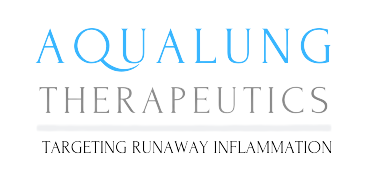
Chorioamnionitis
Chorioamnionitis is a complication of pregnancy associated with significant maternal, perinatal, and long-term adverse outcomes. Adverse maternal outcomes include postpartum infections and sepsis while adverse infant outcomes include stillbirth, premature birth, neonatal sepsis, chronic lung disease and brain injury leading to cerebral palsy and other neurodevelopmental disabilities. There is a need to identify novel therapies to reduce the perinatal mortality and long-term morbidity of chorioamnionitis-related prematurity. (ChorP)
The mechanisms responsible for chorioamnionitis-induced preterm birth remain poorly understood but involve chorioamnionitis-induced development of the fetal inflammatory response syndrome (FIRS) defined by increased systemic inflammatory cytokine concentrations, inflammation of the umbilical cord, and fetal vasculitis. FIRS leads to poor cardiorespiratory, neurological, retinal, and renal outcomes. Given that over 400,000 premature births occur each year in the US, there is an unmet need to address the complications of chorioamnionitis-related prematurity (ChorP) beyond the current therapy of antibiotic administration.
Cause
This condition usually develops because of an infection that can occur when bacteria that are normally present in the vagina ascend into the uterus, where the fetus is located.
E. coli, group B streptococci, and anaerobic bacteria are the most common causes of chorioamnionitis.
The amniotic fluid and placenta — and baby — can become infected.
Risk Factors
❖ young maternal age (less than 21 years old)
❖ low socioeconomic status
❖ long labor
❖ membranes that are ruptured (water has broken) for an extended period of time
❖ multiple vaginal examinations during labor (only a risk factor in women with ruptured membranes)
❖ pre-existing infections of the lower genital tract
❖ internal fetal or uterine monitoring
If you have one or more of these risk factors, you may be more likely to develop chorioamnionitis.
Insights
Chorioamnionitis is a complication of pregnancy associated with significant maternal, perinatal, and long-term adverse outcomes. Adverse maternal outcomes include postpartum infections and sepsis while adverse infant outcomes include stillbirth, premature birth, neonatal sepsis, chronic lung disease and brain injury leading to cerebral palsy and other neurodevelopmental disabilities. There is a need to identify novel therapies to reduce the perinatal mortality and long-term morbidity of chorioamnionitis-related prematurity
(ChorP). The mechanisms responsible for chorioamnionitis-induced preterm birth remain poorly understood but involve chorioamnionitis-induced development of the fetal inflammatory response syndrome (FIRS) defined by increased systemic inflammatory cytokine concentrations, inflammation of the umbilical cord, and fetal vasculitis. FIRS leads to poor cardiorespiratory, neurological, retinal, and renal outcomes. Given that over 400,000 premature births occur each year in the US, there is an unmet need to address the complications of chorioamnionitis-related prematurity (ChorP) beyond the current therapy of antibiotic administration.
ALT-100 Benefits
Aqualung Therapeutics, Corp. has identified a novel therapeutic target in chorioamnionitis. This target is a protein called nicotinamide phosphoribosyltransferase (NAMPT), an upstream highly inflammatory cytozyme. When secreted, extracellular NAMPT (eNAMPT) is a novel ligand for Toll-like receptor 4 (TLR4) resulting in innate immunity activation, NFkB transcriptional activities, and profound tissue inflammation in humans with acute inflammatory lung injury (ARDS), pulmonary arterial hypertension (PAH), and radiation-induced lung injury. We have recently demonstrated robust NAMPT expression in placentas from women with chorioamnionitis, and of further critical importance, demonstrated that IV delivery of a polyclonal eNAMPT-neutralizing antibody (pAb) in the preclinical pregnant mouse model of chorioamnionitis attenuates Fetal Inflammatory Response Syndrome and premature delivery. We, therefore, speculate eNAMPT to significantly contribute to chorioamnionitis and fetal inflammatory response syndrome and with the development of our monoclonal antibody ALT-100 we anticipate further clinical development with this indication.
